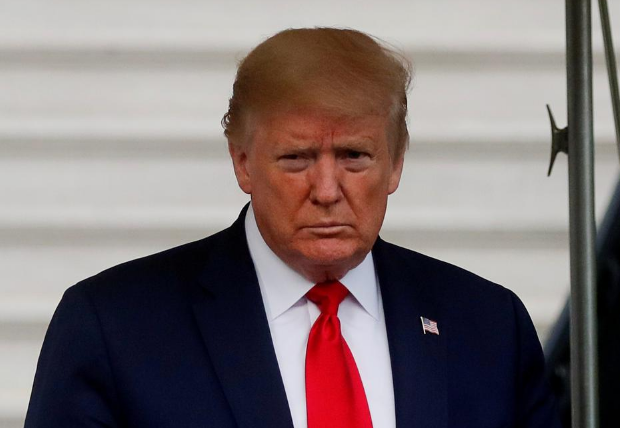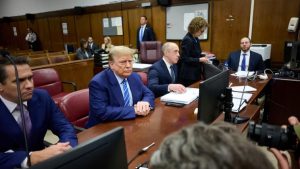The United States Supreme Court has ruled that a New York Prosecutor can have access to President Donald Trump’s financial records as part of a grand jury criminal investigation, pouring cold water on assertions that the President enjoyed absolute immunity while in office.
In a second ruling, the nine Justices denied Congress access to Trump’s tax returns, for now. In both cases the Court decided by a seven-two majority to send the Congressional case back to the lower courts for more consideration of significant separation of powers concerns while deciding that a New York Prosecutor’s subpoena can also be further litigated on the merits.
What the Court did critically decide is that the President does not enjoy, as his lawyers put forward, absolute immunity, ruling that the Manhattan District Attorney may see Mr. Trump’s tax returns and financial records but that the President can still fight the subpoena in lower courts on the merits.
“It’s a critical takeaway because the President’s attorneys argued that as President of the United States he had absolute immunity while he was in office and the court rejected that because under two prior cases, important landmark cases, the Nixon case in which President Nixon tried to hide, or he didn’t want to disclose the tapes in the White House and the Court there said he did not have immunity and that led to his resignation.
And similarly, President Clinton tried to hide documents in the sexual harassment case against Paula Jones and in that case, as well that was used in his impeachment trial. So there are precedents for this. What is remarkable about this case was that the two prior cases, the Clinton and the Nixon cases, the courts were unanimous,” Professor Penelope Andrews of New York Law School explains.
Separation of powers
In the Congressional subpoena’s case, which sought the President’s records as part of three investigations into whether Mr Trump had manipulated his financial statement to avoid tax obligations, possible money laundering through property deals and whether he was vulnerable to foreign influence, the Justices sent the question back down to lower courts to consider the question of separation of powers between Congress and the Executive.
“The question of separation of powers obviously is very, very important, the bedrock of the American constitution and government. What the court is saying is, they’re not saying Congress never has the right to seek that information but they must provide justification and in the lower courts, the Congress had not demonstrated sufficiently justification for the subpoena and once of the justifications is that it is required to enact legislation so it was a defeat for Congress with respect to the here and now of these Congressional hearings but it’s not a defeat with respect to overall immunity and the right of Congress to seek testimony and to seek documents from the President through a subpoena.”
The Manhattan DA case related to hush-money payments made to two women who claimed sexual relations with Mr. Trump, a possible violation of campaign finance laws. With all sides claiming an element of victory, in practical terms, it’s more complex than and win or a loss.
“Both sides have had victory but for some, it’s a temporary victory, so for the President, it’s a temporary victory, in the Manhattan DA cause the Supreme Court has said it goes down to the lower court and the president still has the opportunity as in every case in which there’s a subpoena to fight against the relevance and the details of the subpoena, so it’s a temporary thing, of course, the Manhattan DA has won on the legal principle but practically it means that the President’s financial records may not be disclosed to the American public for a very long time.
Similarly with the Congress, the President has a victory here with respect to the Congress but it’s a temporary victory because the court has not said that Congress never has the right to obtain this information, the Court has basically said you justify it before the lower courts and you did not do that.”
In the video below, is a discussion on the ruling:
A victory for the rule of law
In a nutshell, the documents will not be released anytime soon, certainly not ahead of November’s election. While President Trump complained on Twitter that this was a political prosecution, not fair to his administration and that the Supreme Court had in the past given broad deference to Presidents, but not him, Professor Andrews says both decisions were a victory for the rule of law.
“He’s wrong, the absolutely wrong, it’s not the first time he’s wrong, he’s wrong on the law. As I said the Clinton case and the Nixon case are precedents, the idea that the Supreme Court is very clear about the limits of Presidential immunity. They’ve said the President is not above the law. “
President Trump had long promised the release of his tax returns but has fought tooth and nail to keep them secret. The Supreme Court’s decision is now making his position far more tenuous than before.





